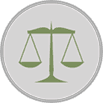Call to Arrange A Consultation
(801) 616-3301

Few human experiences are more difficult and emotional than the issues leading to family legal problems.

Please Call to Arrange a Consultation (801) 616-3301

Since 2002, the bulk of Kelly’s practice has included complex family law matters.

The Law Office of Kelly Peterson, PLLC, accepts debit and credit card payments as a courtesy to our clients.

 The areas of family law are complex and ever-changing. Kelly Peterson has extensive experience and expertise practicing as a family law attorney in a variety of areas, including as a divorce lawyer, mediator, Private Guardian ad Litem, and Special Master. He successfully handles a broad range of family law issues, including divorce, paternity, property division, complex financial issues, spousal support (alimony), child custody and visitation, modifications of previous decrees (such as child or spousal support modification, custody modification & visitation modification), grandparent visitation and grandparents rights, prenuptial agreements, enforcement of previous orders (such as support enforcement, custody enforcement, visitation enforcement, etc.) and protective orders.
Although very experienced in all aspects of family law, Kelly Peterson also has specific expertise for and specializes in cases involving parental alienation, gatekeeping, and parent time interference.
The areas of family law are complex and ever-changing. Kelly Peterson has extensive experience and expertise practicing as a family law attorney in a variety of areas, including as a divorce lawyer, mediator, Private Guardian ad Litem, and Special Master. He successfully handles a broad range of family law issues, including divorce, paternity, property division, complex financial issues, spousal support (alimony), child custody and visitation, modifications of previous decrees (such as child or spousal support modification, custody modification & visitation modification), grandparent visitation and grandparents rights, prenuptial agreements, enforcement of previous orders (such as support enforcement, custody enforcement, visitation enforcement, etc.) and protective orders.
Although very experienced in all aspects of family law, Kelly Peterson also has specific expertise for and specializes in cases involving parental alienation, gatekeeping, and parent time interference.
The Law Office of Kelly Peterson provides not only traditional “full service” attorney services, but also offers “unbundled” or “limited scope” services. This means you may retain Kelly to handle only a portion of your case, including such things as advising you on “next steps” and strategy as you handle your case, document review/preparation, represent you at a single hearing, or negotiate on your behalf. With “unbundled” services, you decide what you need help with the most. To find out more about Unbundled or Limited Scope legal services, Click Here To Read More>>
Go to the Practice Areas page to learn about the legal area you are interested in, and to discover how Kelly Peterson can help you with that issue.
"He is an extraordinary attorney, and stands out among the attorneys in this area. In my experience, Mr. Peterson has always been well prepared for any case in which he takes a position. He does his homework, meets with his clients, and is reasonable, as well as smart in his..."
– Lori Fowlke"I am impressed by Kelly’s work ethic and efficiency. He works extremely hard and is always ultra prepared for his court hearings and trials. He has refined his system of investigating and case preparation to be extremely efficient and effective. Kelly is respected by the..."
– R. John Moody